INTERNACIONAL
Dimitió el líder del partido oficialista de Taiwán tras la votación que ratificó a los legisladores afines al régimen de China
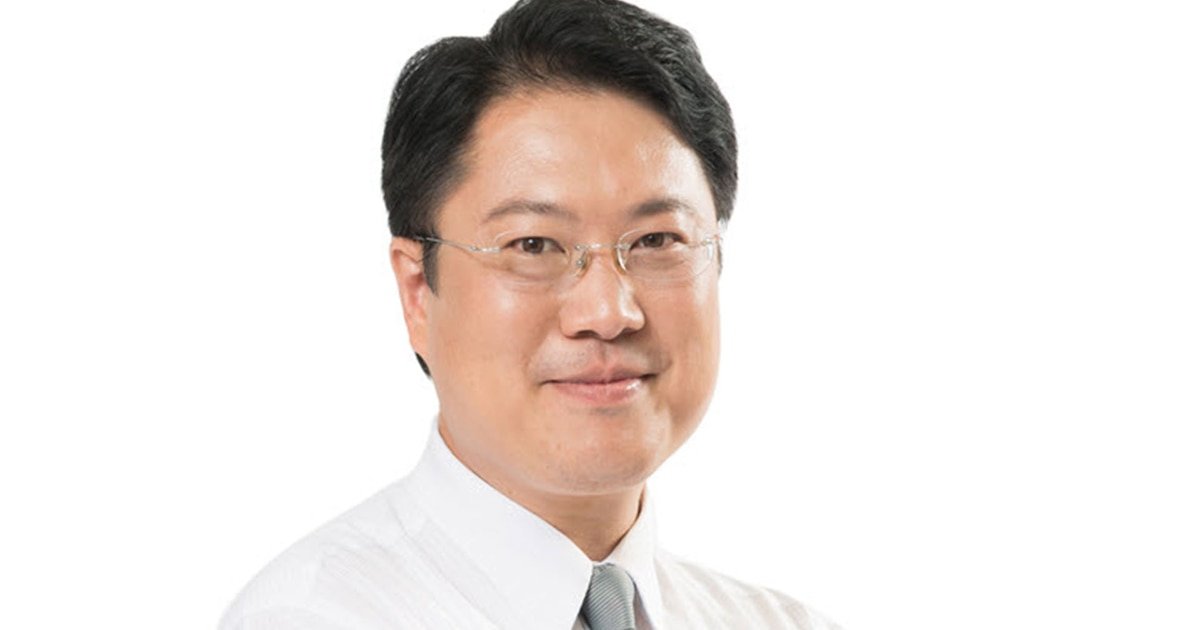
El secretario general del gobernante Partido Democrático Progresista (PDP) de Taiwán, Lin Yu-chang, anunció este lunes su renuncia al liderazgo de la formación, luego del fracaso en las elecciones revocatorias contra 24 legisladores del opositor Kuomintang (KMT), celebradas el sábado. La votación, impulsada por sectores afines al oficialismo, concluyó con la permanencia en sus escaños de todos los parlamentarios objetados, lo que representa un revés político para el gobierno del presidente William Lai.
“Como secretario general del partido, asumo toda la responsabilidad por cualquier deficiencia del PDP”, expresó Lin en un mensaje publicado en su cuenta de Facebook. “Ayer presenté mi renuncia personalmente al presidente Lai. No podemos eludir nuestra responsabilidad por no haber estado a la altura de las expectativas de la sociedad”.
Lin añadió que “en este momento, lo que menos necesitamos es buscar excusas por el resultado; lo que debemos hacer es encontrar un camino para el futuro. Taiwán, este pequeño país montañoso lleno de dificultades, necesita que todos sigamos defendiéndolo”.
Los 24 legisladores del KMT conservaron sus cargos luego de superar la inédita votación de revocatoria, la primera de este tipo a gran escala en la historia democrática de la isla. El intento de destitución fue promovido por organizaciones civiles vinculadas al PDP, en respuesta a una serie de decisiones parlamentarias que, según el oficialismo, amenazan el equilibrio institucional y favorecen intereses del régimen de Beijing.
El resultado deja intacta la mayoría opositora en el Yuan Legislativo, compuesta por 52 escaños del KMT, 8 del Partido Popular de Taiwán (PPT) y 2 legisladores independientes cercanos al bloque. El PDP, por su parte, se mantiene con 51 asientos.
Durante los últimos meses, esta mayoría legislativa ha impulsado iniciativas para ampliar los poderes de supervisión del Parlamento, limitar el presupuesto estatal y dificultar el funcionamiento del Tribunal Constitucional. Estas medidas fueron interpretadas por el PDP como intentos de obstrucción institucional, mientras que el KMT y sus aliados aseguran que se trata de reformas para fortalecer la rendición de cuentas.
El presidente del KMT, Eric Chu, celebró los resultados y criticó el uso del proceso de revocatoria con fines políticos. “La piedra angular de la democracia radica en respetar el mandato popular y garantizar la estabilidad de los periodos de gobierno”, afirmó. “La democracia no debe usarse para dividir a la sociedad, incitar al enfrentamiento o alimentar el odio y la lucha política”, añadió.
Desde Beijing, el portavoz de la Oficina de Asuntos de Taiwán del Consejo de Estado, Chen Binhua, calificó las votaciones de revocatoria como un ejemplo del “rostro dictatorial” y acusó al PDP de “fomentar el terror verde”, en alusión al color del partido.
En respuesta, el Consejo de Asuntos Continentales de Taiwán (MAC), que supervisa las relaciones con China, rechazó las declaraciones del régimen chino. “Beijing no tiene derecho a comentar o malinterpretar el sistema democrático de Taiwán”, señaló el MAC en un comunicado recogido por el Taipei Times. “El referéndum revocatorio fue un ejemplo concreto del sistema constitucional democrático de Taiwán. Beijing no debería utilizarlo como excusa para maniobras políticas maliciosas”.

Está previsto que el próximo 23 de agosto se celebren nuevas votaciones revocatorias, esta vez contra siete legisladores del KMT. No obstante, analistas locales consideran que el fracaso del sábado ha debilitado la legitimidad de esa estrategia y podría frenar la ofensiva del PDP en el Parlamento.
El revés electoral ocurre en un momento crítico para la administración de William Lai, que asumió la presidencia en mayo y enfrenta desde entonces una mayoría legislativa hostil. La imposibilidad de remover a legisladores clave complica aún más su capacidad de implementar reformas y ejercer control sobre el Legislativo, mientras persisten las tensiones con China y aumenta la presión interna sobre la conducción del partido oficialista.
(Con información de EFE)
Asia / Pacific,Government / Politics,Elections / Voting,TAIPEI
INTERNACIONAL
Histórico juicio contra Álvaro Uribe en Colombia: «La justicia no se arrodilla al poder»
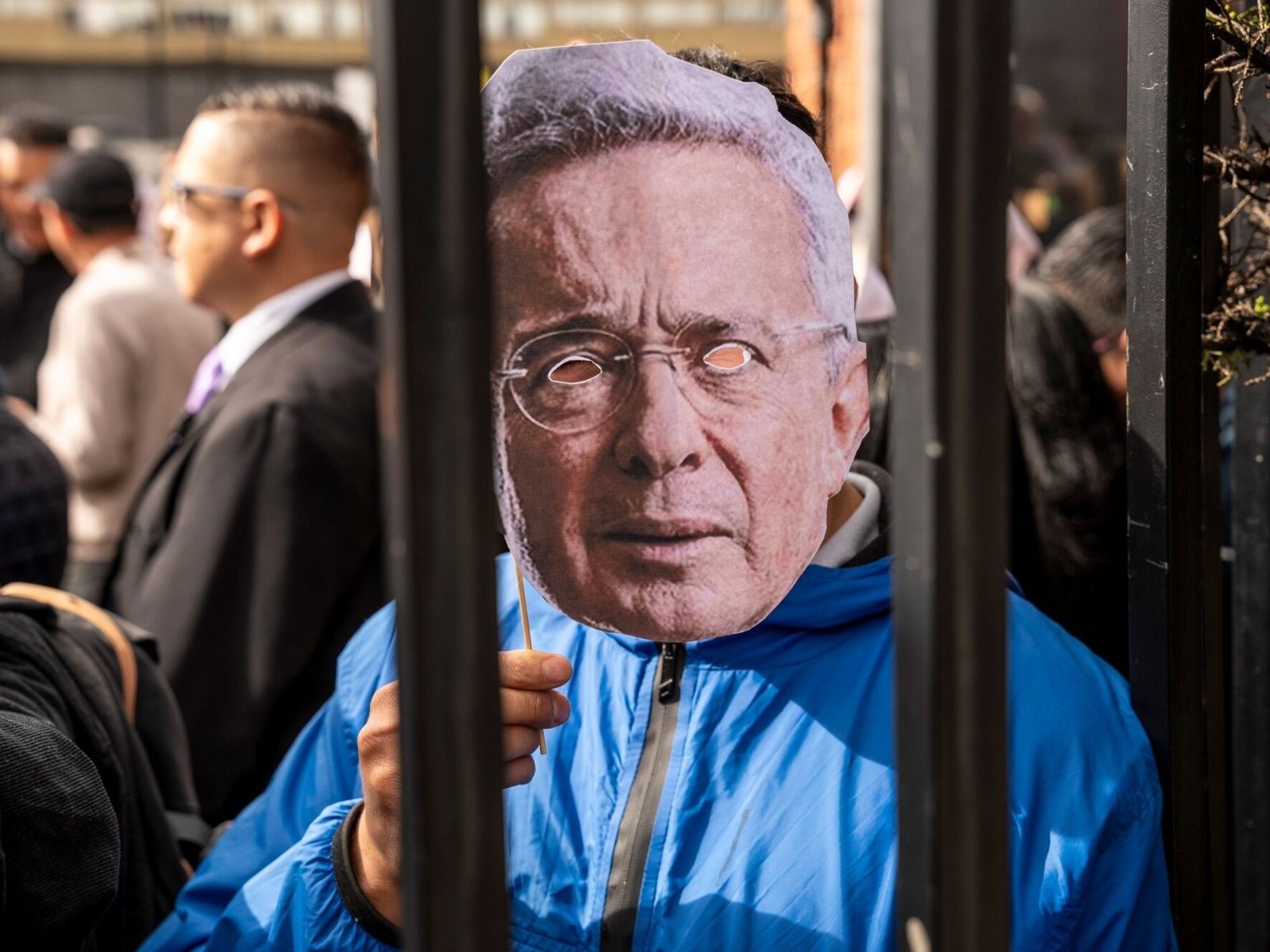
Las claves del «juicio del siglo»
INTERNACIONAL
Democratic Party tensions seep into bipartisan group as governors resisting Trump’s agenda reconsider dues
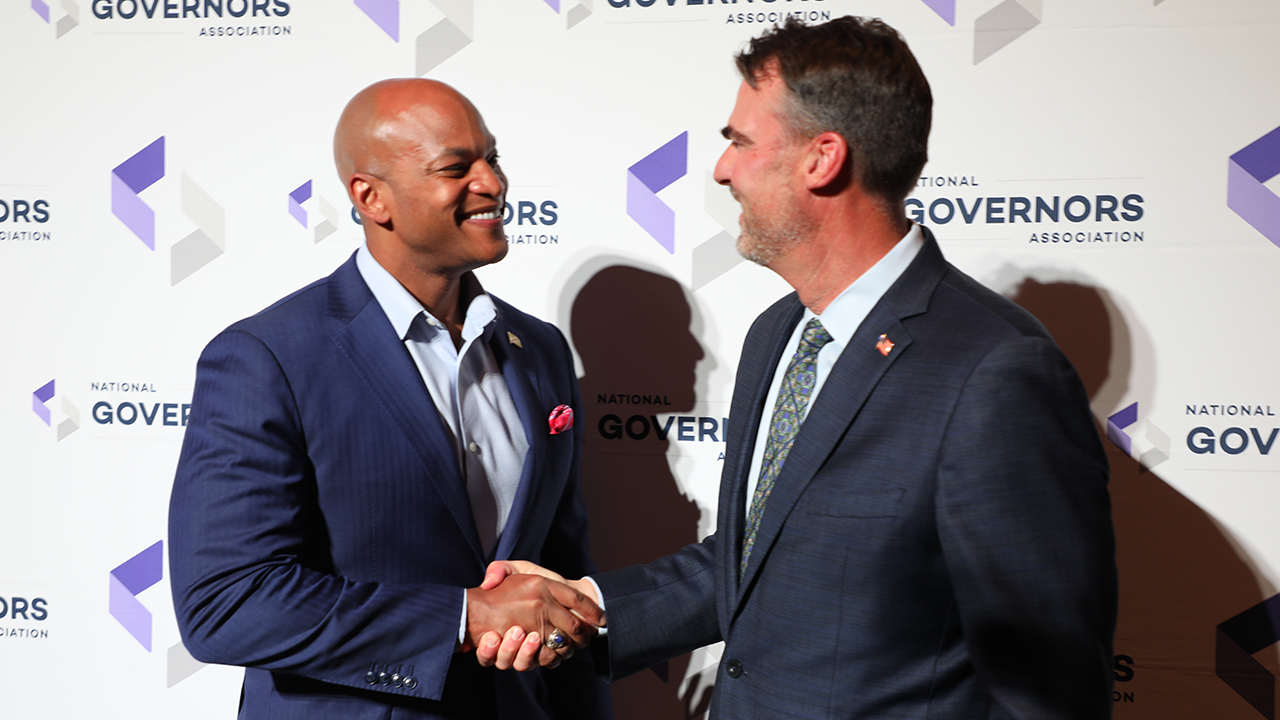
NEWYou can now listen to Fox News articles!
Colorado Springs, Colo. – A typically drama-free bipartisan meeting of the nation’s governors got off to a rocky start when The Atlantic reported ahead of the National Governors Association (NGA) summer meeting in Colorado Springs, Colorado, that some Democratic governors were considering withholding their dues, arguing that the NGA is not doing enough to reject President Donald Trump’s alleged impediment to states’ rights.
Chair of the Democratic Governors Association (DGA) Gov. Laura Kelly of Kansas will stop paying NGA dues starting next month, a source familiar with the governor’s thinking confirmed to Fox News Digital. The Atlantic reported that former DGA chair and failed vice presidential candidate, Gov. Tim Walz of Minnesota, is also considering stepping away from the NGA.
Gov. Wes Moore, D-Md., who became NGA vice chair this past weekend, told reporters on Saturday that some of the Democratic governors’ frustrations about the effectiveness of the bipartisan group are «justified.»
But a source familiar with the matter, who attended the summer meeting and was granted anonymity to speak more freely, told Fox News Digital, «You can’t blame a bipartisan organization for your lack of cohesive messaging.»
INCOMING NGA CHAIR ‘DISAPPOINTED’ IN DEM GOVERNORS ‘PLAYING POLITICS’ IN BIPARTISAN GROUP
National Governors Association (NGA) chair Gov. Kevin Stitt, R-Ok., (right) and vice chair Gov. Wes Moore, D-Md., shake hands following a media availability at the summer meeting in Colorado Springs, Colorado. (Deirdre Heavey/Fox News Digital)
Since losing the White House and Congress last year, Democrats have struggled to look to a new party leader and deliver a cohesive message.
While it’s clear that Democrats reject Trump’s agenda, infighting at the Democratic National Committee (DNC) and within the New York City mayoral race have exposed the party’s disagreements on how to effectively combat Republicans’ current political prowess.
TIM WALZ LEADING DEM EFFORT TO TURN BIPARTISAN GROUP AGAINST PRESIDENT TRUMP: REPORT
Democratic Gov. Jared Polis of Colorado led his final meeting as NGA chair this past weekend, passing the leadership baton to Republican Gov. Kevin Stitt of Oklahoma and incoming vice chair, Moore.
During a media availability to conclude the weekend, Moore, considered a potential 2028 presidential candidate, confirmed that he spoke with both of the Democratic governors who are casting doubt on the effectiveness of the NGA.
«They’ve expressed some of their frustrations, and frankly, I think some of the frustrations they have expressed are justified, because I do think it is important that this organization is never going to be either the cheerleader nor the heckler of a federal administration, no matter what the federal administration is,» Moore said.
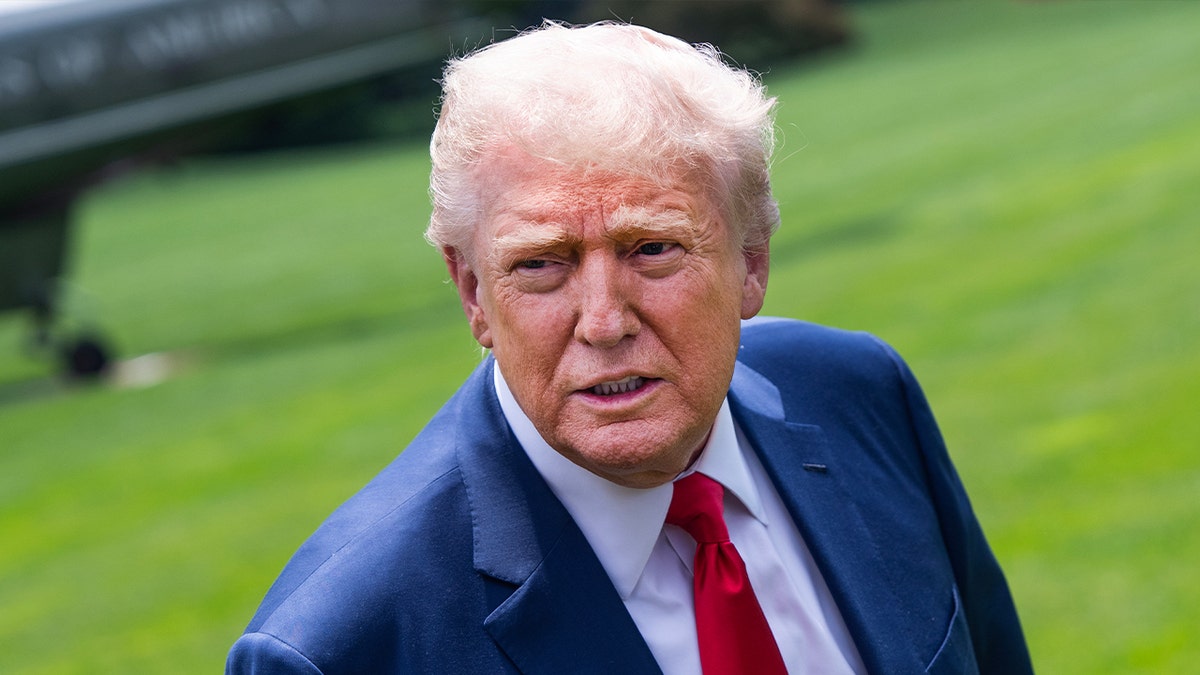
President Donald Trump arrives on the South Lawn of the White House from Camp David on Monday, June 9, 2025. (Tom Williams/CQ-Roll Call, Inc)
While he said it is not the job of the bipartisan NGA to support or reject the Trump administration, Moore said there are «certain things we want to make sure that the organization continues to uphold.»
Walz has not responded to Fox News Digital’s requests for comment on the reporting and has not issued a public statement explaining his disagreement with the bipartisan group.
A source familiar with Kelly’s thinking said the Kansas governor won’t renew her dues at the NGA this year because the organization hasn’t been upholding its mission statement to advance and protect states’ rights.
The source said Kelly doesn’t think the NGA is doing enough to stand up against the «dismantling of solutions-based governance, which is what the NGA claims to advance and push for.»
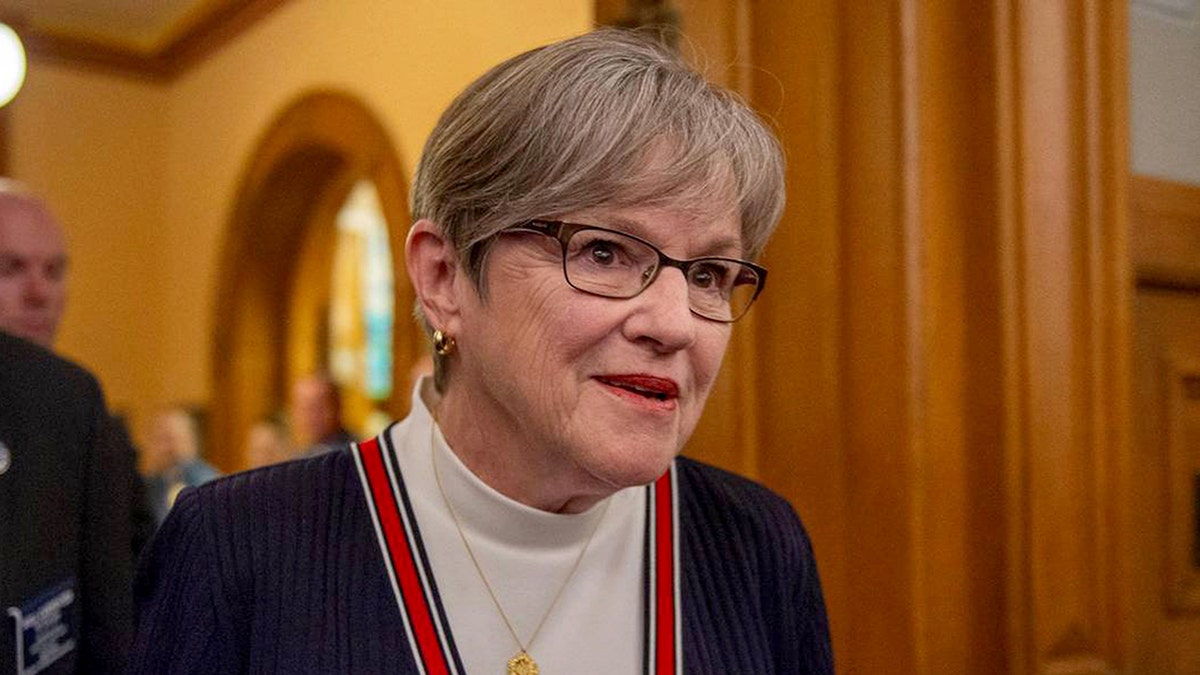
Kansas Gov. Laura Kelly enters the House chamber for the State of the State address at the Kansas State Capitol on Jan. 10, 2024, in Topeka, Kansas. (Emily Curiel/The Kansas City Star/Tribune News Service via Getty Images)
However, if the NGA were to demonstrate that «they are willing to stand up for states’ rights in this moment and show that it’s worth the use of taxpayer dollars,» then Kelly would be interested in reassessing Kansas’ membership, according to the source familiar with the governor’s thinking.
According to The Atlantic report, citing unnamed sources, Kelly and Walz thought the NGA «did not respond forcefully enough» when the Trump administration paused federal funding earlier this year, as Gov. Janet Mills of Maine clashed with Trump over biological men playing in women’s sports and, more recently, when Trump authorized the National Guard to California amid the anti-ICE protests.
But Eric Wohlschlegel, NGA communications director, countered, «Every public statement NGA issues reflects bipartisan consensus. So far this year, all but one statement has had that consensus, and when governors don’t agree, we simply don’t issue one. That’s how we preserve our role as a bipartisan convener, a principle we won’t compromise.»
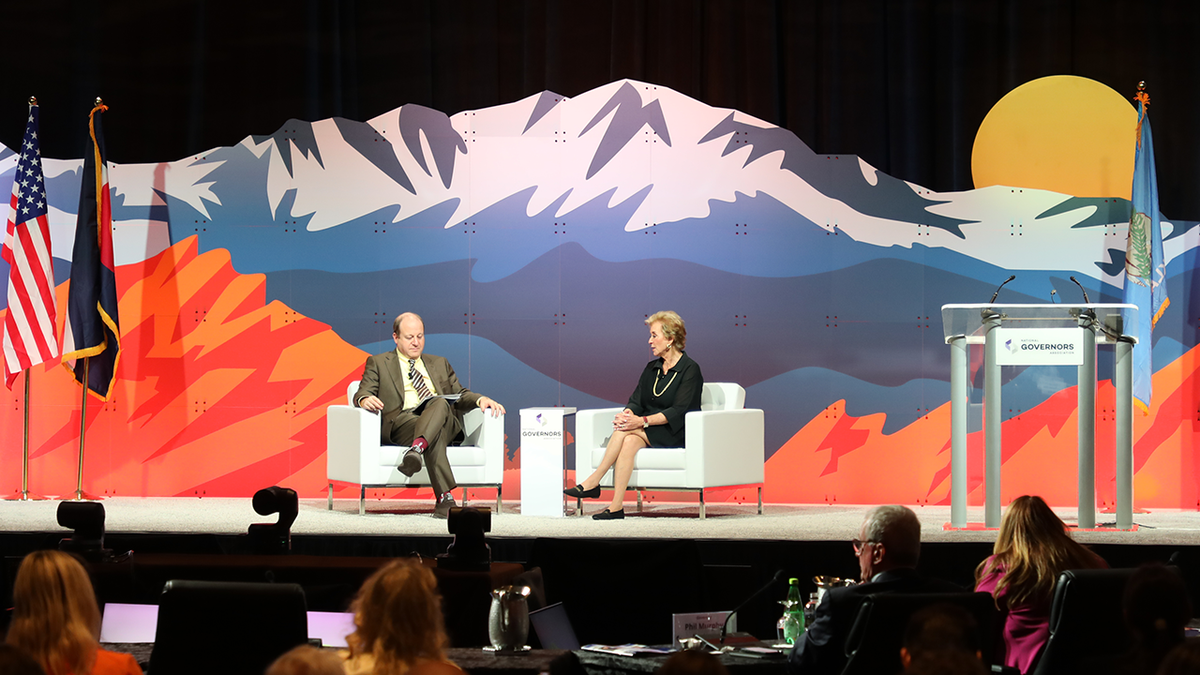
National Governors Association (NGA) outgoing chair Gov. Jared Polis discusses American education with Education Secretary Linda McMahon at the NGA Summer meeting in Colorado Springs, Colo., on Friday, July 25, 2025. (Fox News Digital / Deirdre Heavey)
The summer meeting featured discussions with two of Trump’s most controversial cabinet picks, Education Secretary Linda McMahon and Health and Human Services (HHS) Secretary Robert F. Kennedy, Jr.
Polis told reporters on Saturday that governors were most concerned about education and healthcare, so the cabinet members’ participation created an effective forum for the executives to address their questions and deliver for their states.
Wohlschlegel highlighted the bipartisanship on display at the summer meeting in a statement to Fox News Digital.
«After days of one-on-one meetings between governors and Education Secretary Linda McMahon during the conference, the department released over $5.5 billion it had been withholding from states. That’s not a coincidence, but the power of bipartisan leadership coming together to deliver real results,» he said.
Moore told reporters on Saturday that the NGA will continue to «show all of our colleagues the value add for them to be a part of the NGA» and the «hopeful goal for the NGA is also one where we can bring our friends back into the fold.»
Polis also confirmed he had spoken with the Democratic governors about their departure from the NGA, but he did not affirm their frustrations to reporters as Moore did.
«I think that it’s incumbent on the organization to show the value to the governors,» Polis added. «For me, it’s an easy decision. We get our value for our dues, and I am a more effective governor because of it, and that’s the way the vast majority of governors feel. Of course, there’s going to be a few on both sides of the aisle that don’t, and there always have been.»
The NGA has existed as a forum for bipartisan collaboration among governors since 1908.
«We shouldn’t be playing politics like they do in Washington, D.C.,» Stitt told Fox News Digital in an exclusive interview at the summer meeting. «But sometimes, if you’re a governor running for president or a higher office, you make it political.»
CLICK HERE TO GET THE FOX NEWS APP
«I would tell anybody, listen, do you want your leaders to take their ball and go home just because they get mad at something? That’s not the way to solve problems,» Stitt said, before adding, «Listen, this isn’t the time to take our ball and go home. Let’s sit down and debate what the best policies [are] going forward.»
Fox News Digital’s Peter Pinedo contributed to this report.
INTERNACIONAL
Iran more than doubles state executions in first half of 2025

NEWYou can now listen to Fox News articles!
Iran more than doubled the number of state executions it has carried out this year compared to data from the first half of 2024, confirmed the United Nations on Monday.
The UN Human Rights Office said that at least 612 people have been executed this year alone, a figure more than double the 297 people who were killed during the same time period last year.
Minority groups continue to make up a disproportionate number of those being killed by Tehran, confirmed the U.N.
Portraits of the Iranian youths that the Iranian regime has killed seen displayed at the rally in Paris, France on May 13, 2025. (Siavosh Hosseini/SOPA Images/LightRocket via Getty Images)
IRAN RAMPS UP STATE EXECUTIONS AMID NUCLEAR TALKS WITH US
«It is alarming to see the reports that indicate there are at least 48 people currently on death row – 12 of whom are believed to be at imminent risk of execution,» U.N. Human Rights Chief Volker Türk said on Monday.
The news of the drastically increased number of state executions comes just one day after Tehran killed Behrouz Ehsani and Mehdi Hassani on Sunday, both of whom were allegedly involved with the opposition movement known as the People’s Mojahedin Organization of Iran (MEK).
Maryam Rajavi, president-elect of the National Council of Resistance of Iran, a dissident group based in Paris led by the MEK, took to X to condemn the killings, and quoted the final words of Behrouz Ehsani: «We will never—under any circumstances—surrender to this bloodthirsty and criminal regime. Never shall we bow to humiliation.»
According to Amnesty International, «[both] were executed arbitrarily amid Iran’s horrific execution crisis.»
«Their executions highlight the authorities’ use of the death penalty as a tool of repression in times of national crisis to crush dissent and spread fear,» the group added.
More than 40% of those executed this year were convicted on drug-related offenses, while the U.N. also found that many were not only tried behind closed doors, but were issued vague charges like «enmity against God» and «corruption on earth» — both of which are apparently used by the regime to «silence dissent.»
«Information received by my Office also indicates that judicial proceedings in a number of cases, often held behind closed doors, have consistently failed to meet due process and fair trial guarantees,» Türk said in a statement.
IRAN EXECUTES OVER 1K PRISONERS IN 2024, HIGHEST TOTAL IN 30 YEARS, REPORT SAYS
The number of state executions has drastically escalated since President Massoud Pezeshkian took office in July 2024, with at least 975 people killed in 2024, the highest rate since 2015.
The U.N. body further warned that Iran is looking to expand its use of the death penalty and is reviewing a new espionage bill that will redefine what it considers «collaboration with hostile States.»
Acts including online communication and collaborating with the foreign media will apparently call into question their «ideological alignment» and will be punishable by death.
The changes come as Israel has called for a regime change in Tehran, and has repeatedly emphasized that the recent strikes were an attack against the government, not the Iranian people.

A woman is laying down flowers for the victims of executions in Iran during the rally in Paris, France on May 13, 2025. (Siavosh Hosseini/SOPA Images/LightRocket via Getty Images)
CLICK HERE TO GET THE FOX NEWS APP
«This bill dangerously broadens the scope of capital punishment for espionage, and I call for it to be rescinded,» Türk said. «The death penalty is incompatible with the right to life and irreconcilable with human dignity.
«Instead of accelerating executions, I urge Iran join the worldwide movement abolishing capital punishment, starting with a moratorium on all executions,» he added.





































